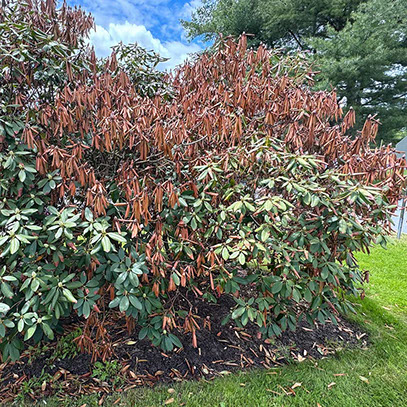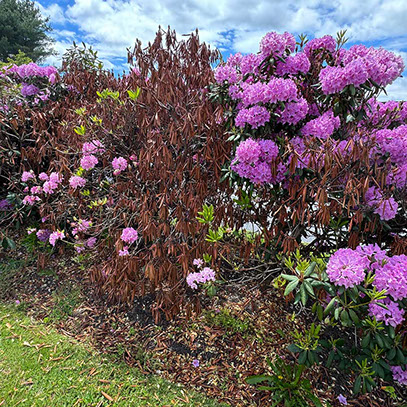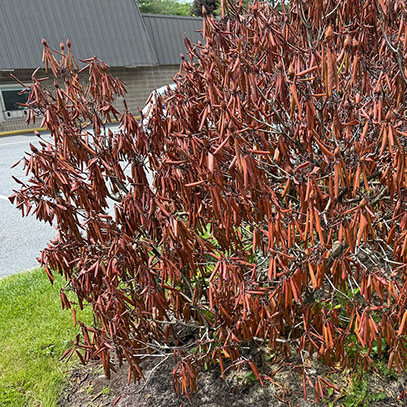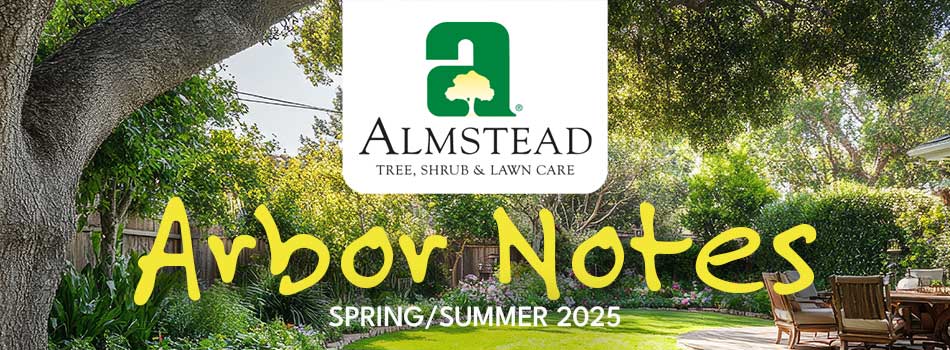The science of preserving nature since 1964
Summer Tree, Shrub and Lawn Care:
Why Your Plants May Be Struggling After Winter
If your landscape doesn’t look as lush or vibrant as it usually does this time of year, you’re not alone. Many homeowners across the Northeast are seeing signs of stress in their lawns, trees, and shrubs this spring and early summer — and much of it can be traced back to unusual weather patterns last fall and winter.
The 2024 season ended with an extended drought well into November, after most irrigation systems had already been shut off. This meant that many trees and shrubs went into winter under-hydrated. Soon after, a series of early and intense cold snaps set in, compounding the stress on plants that were already struggling. This combination — dry roots and abrupt freezing — can be particularly damaging, especially to broadleaf evergreens, new plantings, and shallow-rooted ornamentals.
Now that the growing season is underway, the damage is becoming more visible. Some trees and shrubs have not leafed out fully, and others are showing signs of dieback, browning foliage, or thinning canopies. Lawns may also be patchy or slow to green up in areas that experienced root stress or winter desiccation. These symptoms often don’t emerge until weeks—or even months—after the original stress event.
Among the most noticeably affected species this year are rhododendrons, Leyland cypress, arborvitae, boxwoods, and Japanese maples. On larger trees, buds that failed to break or leaf tips that shriveled early are indicators of dormant-season injury. While some plants may recover with the right care, others may be too far gone and require replacement.
The good news is that early intervention can make a big difference. A professional assessment can help determine which plants are viable and which may need additional support, such as soil amendments, deep root watering, pruning, or targeted plant health care treatments. In some cases, strategic removals and replanting with more site-appropriate species can also help build a more resilient landscape moving forward.
At Almstead, our Certified Arborists and lawn care specialists are trained to diagnose the specific causes of plant decline and recommend tailored solutions. Whether your property needs immediate recovery treatments or a longer-term health management plan, we’re here to help restore the beauty and vitality of your landscape after a tough winter.




LOCATIONS:
Lower Westchester County, NY and New York City
58 Beechwood Ave, New Rochelle, NY 10801
914-576-0193
Upper Westchester (North of I-287)
15 Broadway, Hawthorne, NY 10532
914-741-1510
Fairfield County, Connecticut
547 Hope Street, Stamford CT 06907
203-348-4111
Bergen & Passaic Counties, NJ
504 High Mountain Road, North Haledon, NJ 07508
973-636-6711
Contact us for a Free Consultation
